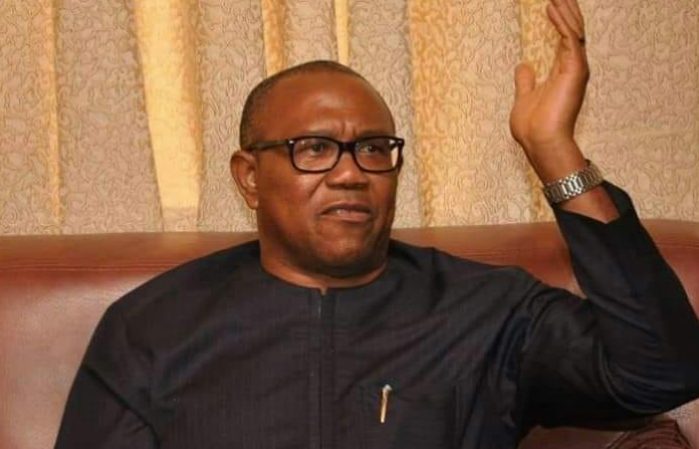Why Nigeria’s rich and famous should support Peter Obi
When I was aspiring to become president, a veteran journalist asked me why I decided to cast aside my good life in America and muddle with the murky waters of Nigerian politics. The gentleman appeared perplexed when I answered that the sacrifice was “for me.” I would further explain that a core part of my […]

Peter Obi
When I was aspiring to become president, a veteran journalist asked me why I decided to cast aside my good life in America and muddle with the murky waters of Nigerian politics. The gentleman appeared perplexed when I answered that the sacrifice was “for me.”
I would further explain that a core part of my vision in life is to promote public welfare that can guarantee my welfare. I reasoned that I am as good as my immediate environment. I reminded him that like many, including the big men, I am most at home in my hometown; in this case, Ugbo, a serene hilltop habitat in Awgu Local Government Area of Enugu State.
Enough of IGP, Police Commission power tussle
2023 Polls: NBA conference as litmus test
Like many Nigerian communities, my hometown sparkles with magnificent mansions and celestial places of worship but lacks standard public amenities.
Yes, I can equally afford quality medical care and quality education for my family members overseas, but it smacks stark ignorance to assume that such an opportunity would guarantee me peace of mind. That is, what happens if I or any close relation encounters a serious medical emergency at any given hour of the day or night while in that small town that has no standard health facilities?
The exemplar with Jonathan, then a sitting president, best makes my case: His younger brother, Meni Jonathan, suddenly became ill on one fateful day in their hometown of Otuoke and needed urgent medical attention. But any notion of luck ought to have limitations. Hear Mr. Goodluck himself as he narrated the predicament in his own words: Meni “drove himself down to Yenagoa to board the chopper to Abuja. He got to Abuja that Saturday and was admitted to the hospital. The following Monday, his breathing changed. I said, let us make arrangements to get him out—to let him get treatment outside. So, an arrangement was made. Unfortunately, the following day he had a cardiac arrest and inflamed heart at the State House Clinic.” Sadly, despite the expedient excellencies, a president’s brother, like an ordinary Nigerian, gave up the ghost in November 2012 in the capital city of Abuja.
The only solution is true change. The Nigerian presidential election of 2023 is a make-or-mar for that elusive change. Of the candidates seeking the presidency, only three have legitimate chances of victory, namely, Atiku Abubakar of the Peoples Democratic Party (PDP), Peter Obi of the Labour Party (LP), and Ahmed Tinubu of All Progressives Congress (APC). So, is it Atiku that represents the change? How, and how can it be? Is it then Tinubu, the National Leader of the ruling APC, who roundly endorses those actions of the current government, as well as its functionaries that have combined to ruin Nigeria?
With every sense of modesty, unless one is unpatriotic and blinded by a timid clad of ethnic, religious or party sentiments, the choice in 2023 is a no-brainer: Mr. Peter Obi stands out as the candidate most likely to bring us any semblance of change at this time in history. Moreover, the former Anambra governor is the choice of the Nigerian restless youths and, of course, the sole answer with the potential to avert an adverse revolution.
Dr. SKC Ogbonnia, an ex-APC presidential aspirant, writes from Houston, Texas
